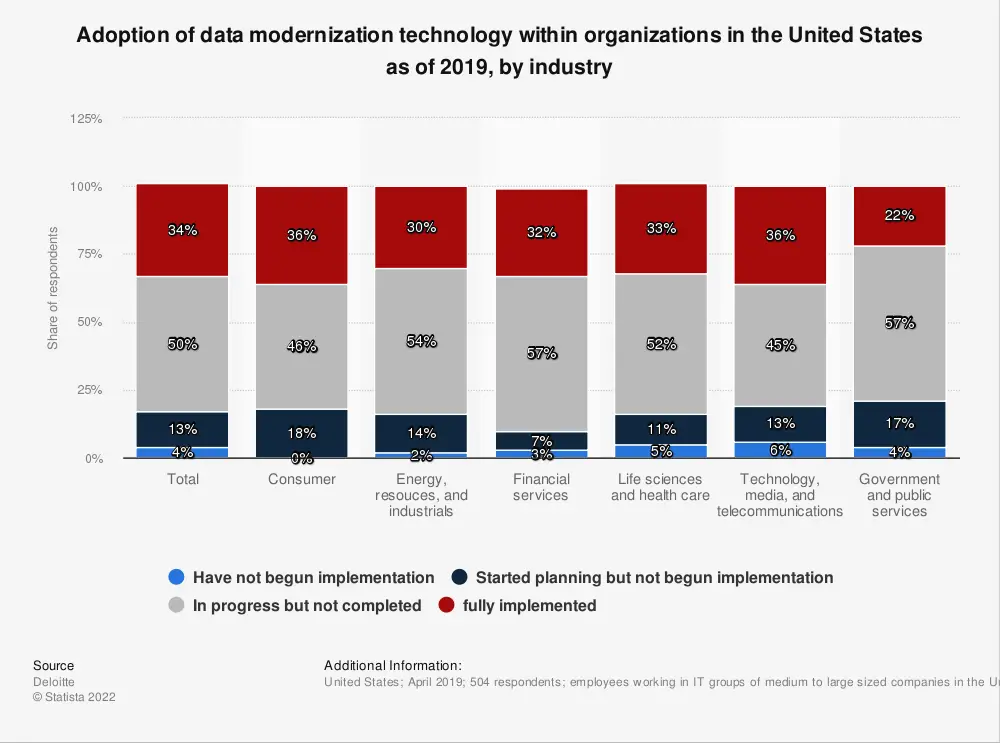Databases are powerful tools that can help businesses organize and store data, making it easier to access and analyze. With the right database setup, organizations can gain insights into customer behavior, sales trends, and more. But what types of businesses might use databases? Let’s take a closer look.
Small Businesses
Small business owners often have limited resources for managing their data. However, with the right database setup, they can make the most of their data without having to invest in expensive software or hire additional staff members. For example, a small business owner could use a database to store customer information such as contact details and purchase histories. This information can then be used for targeted marketing campaigns or analysis of customer behaviors.
Large Corporations
Large corporations often have vast amounts of data that need to be managed efficiently. In these cases, databases come in handy for helping employees quickly search through large amounts of data. Additionally, databases allow companies to track sales trends over time so they can better understand their customers’ needs and preferences. This information can then be used to improve products or services and increase profits.
Government Agencies
Government agencies must manage large amounts of information related to citizens, laws, regulations, policies, etc. Without a reliable database system in place, this process would be incredibly difficult and time-consuming. By utilizing databases, government agencies can store all this information securely while allowing employees quick access when needed.

What Are Some Common Database Management Systems?
Database management systems (DBMS) are software programs that enable users to store, retrieve, and modify information within a database. DBMSs are essential components in many IT organizations and companies, as they provide structure and organization to large amounts of data.
MySQL
MySQL is an open-source relational database system developed by Oracle Corporation. It is one of the most widely used DBMSs in the world and has been used for enterprise applications since 1995. MySQL’s main strength is its ability to handle large databases quickly and effectively, making it ideal for web applications that require rapid access to data. MySQL also offers built-in scalability and supports a variety of programming languages and platforms.
PostgreSQL
PostgreSQL is another open-source relational database system that was designed from the ground up to handle large volumes of data with ease. PostgreSQL offers powerful features such as advanced security options, high transaction throughput, extensive indexing capabilities, and an intuitive query language (SQL). PostgreSQL is often used by organizations looking for an enterprise-level solution that can scale with their needs.
MongoDB
MongoDB is a document-oriented NoSQL database system that stores information in documents rather than tables or rows like traditional SQL databases. MongoDB’s main advantage over other NoSQL systems is its flexibility; developers can easily add or remove fields without having to rewrite existing queries or code. This makes it ideal for applications where data structures are constantly changing or evolving. MongoDB also offers built-in scalability and replication features as well as high performance when dealing with large datasets.
Microsoft SQL Server
Microsoft SQL Server is Microsoft’s flagship product in the field of relational database management systems (RDBMS). It is a feature-rich product that provides powerful tools for managing data at both small and large scales. SQL Server offers high availability options such as clustering and mirroring, along with built-in support for high-performance tasks such as online transaction processing (OLTP) applications. It also integrates seamlessly with other Microsoft products, such as Windows Azure Cloud Platform and Office 365 Business Suite.
Database management systems are essential components for any business looking to store and manage large amounts of data efficiently and securely. There are several popular DBMSs on the market today, including MySQL, PostgreSQL, MongoDB, and Microsoft SQL Server, each offering its own unique set of features suited to different types of organizations’ needs.
Knowing the pros and cons of each system will help you make an informed decision when choosing a DBMS for your organization’s needs. By researching these common database management systems thoroughly, you can select the right one best suited to optimize your business’s digital presence.
Advantages And Disadvantages Of Database Management Systems
In the world of computing, database management systems (DBMS) are an essential piece of technology. DBMS have been around since the 1960s, and they have evolved over time to become a crucial part of many complex software applications.
But what exactly is a DBMS, and what advantages and disadvantages does it offer? Let’s take a look.
What Is a Database Management System?
A DBMS is a program that allows for the storage, retrieval, manipulation, and deletion of data from a database. The goal of a DBMS is to allow users to easily access data from multiple sources in an efficient manner. It also provides users with tools for creating reports, running queries, and manipulating data in various ways.
Advantages
One of the primary advantages of using a DBMS is that it allows users to quickly access data without needing to know any programming languages or SQL commands. A well-designed DBMS will also provide features such as security measures that can protect sensitive data from unauthorized access. Additionally, most modern DBMS offer scalability features so they can grow with your business needs.
Disadvantages
The main disadvantage to using a DBMS is the cost associated with its acquisition and maintenance. Depending on your specific needs, you may need to purchase additional hardware or specialized software which can add up quickly.
Additionally, databases require regular maintenance in order to ensure optimal performance and security; this may require hiring additional personnel or contracting out these tasks which can further increase costs. Finally, certain types of databases may be more difficult to work with than others due to their complexity or lack of support from vendors.

Looking For Targeted Leads?
Find accurate B2B contact information for targeted marketing. Close more deals and start more conversations.
Popular Types Of Database Management Systems
A database management system (DBMS) is a software program that allows organizations to store, manage and retrieve data from databases. DBMSs are an essential component for businesses that rely on data-driven operations.
Without them, it would be nearly impossible to make sense of the vast amounts of data that’s collected and stored in databases.
Relational Database Management System (RDBMS)
A relational database management system (RDBMS) is one of the most popular types of DBMSs on the market today. This type of DBMS stores data in tables and uses Structured Query Language (SQL) to manipulate those tables and query information from them. It also has features like multi-user access control, transaction processing, security measures, backup and recovery capabilities, etc., making it an ideal choice for businesses that need robust data storage solutions.
Object-Oriented Database Management System (OODBMS)
An object-oriented database management system (OODBMS) is a type of DBMS that stores information as objects rather than in a relational format. It employs an object-oriented programming language such as C++ or Java to interact with the database. Since objects contain both data and methods for manipulating them, OODBMs provide more flexibility than RDBMs when it comes to designing database applications. They are particularly useful for applications that require complex relationships between various pieces of information such as scientific or engineering projects.
NoSQL Database Management System (NoSQL DBMS)
NoSQL is an acronym that stands for “not only SQL” and refers to any type of non-relational database management system. Unlike RDBMs and OODBMs which store information using traditional row/column structures, NoSQL DBMSs store information in document formats or key/value pairs instead. This makes them much faster than traditional RDBM systems but also less reliable since there’s no guarantee that the data will be consistent across different documents or keys/values pairs within the same database instance. NoSQL databases are becoming increasingly popular among web developers due to their scalability and ability to quickly process large datasets without sacrificing accuracy or performance.
How To Choose The Right Database Management Systems For Your Needs
Choosing the right database management system (DBMS) is an important decision that can greatly impact your business. The right DBMS will ensure that data is secure and can be readily accessed by users. It should also provide scalability and flexibility, so that it can handle future growth.
With these criteria in mind, let’s take a look at some of the most popular DBMSs and how they differ from one another.
Relational Database Management Systems (RDBMSs)
Relational databases are the most common type of DBMS used today. They use a collection of tables with columns and rows to store data in a structured format. This allows for quick retrieval of information, as well as easy manipulation of data using SQL commands. Popular RDBMSs include Oracle, MySQL, and Microsoft SQL Server.
NoSQL Databases
NoSQL databases are designed to store large amounts of unstructured data in a distributed fashion. These databases have become increasingly popular due to their ability to scale quickly and easily without sacrificing performance or data integrity. Popular NoSQL databases include MongoDB, Apache Cassandra, and Couchbase Server.
Cloud-Based Databases
Cloud-based databases are becoming more commonplace as businesses move away from traditional on-premise solutions. Cloud-based databases offer a number of benefits, including scalability, cost savings, and availability across multiple platforms. Popular cloud-based databases include Amazon Web Services (AWS), Microsoft Azure, and Google Cloud Platform (GCP).
Conclusion
Database management systems are a powerful tool for businesses of all sizes. They can help you store data, track customer interactions, and more. However, it’s important to pick the right system for your needs to avoid any potential problems down the road
References
https://en.wikipedia.org/wiki/Database
https://www.oracle.com/uk/database/what-is-database/
https://www.britannica.com/technology/database

